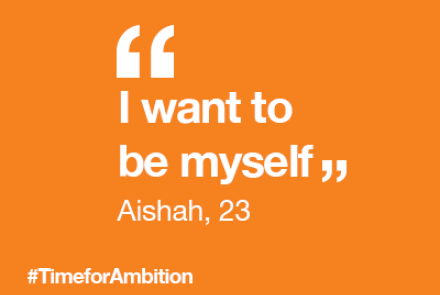What you need to know about further education
What happens when I reach 16?
In England all young people have to stay in education or training until they are 18. You don’t have to spend all your time learning, you can combine education or training with paid or voluntary work (at least 20 hours per week). Your options include:
- staying on at school or moving to another school
- going to a further education college (mainstream or specialist)
- doing an apprenticeship
- doing a supported internship
- doing a programme of training and work experience.
What is further education?
Further education (or FE) is the education or learning that comes after the age of 16. It doesn’t include university courses, which are called higher education (or HE), but it does include pretty much everything else.
Further education colleges provide a wide range of courses, usually on a full-time or part-time basis. FE colleges will have a prospectus, which is an information book where you can find out more about the courses on offer, entry requirements and how to apply. You can pick up a prospectus at a college open event, or find it online. There is usually a choice between mainstream courses and courses designed for people with special educational needs. Sometimes you can combine doing both of these.
A good place to look for local FE colleges is on your local authority website. You can find your local authority on the Direct Gov website by typing in your home post code. Otherwise, you can ask a careers teacher or the SENCO (SEN coordinator), at your current school for advice about what is available locally.
Specialist colleges, for students with special educational needs, also provide further education and employ specialist staff to support you whilst you learn. This may include speech and language therapists, occupational therapists, or other professionals. Specialist colleges tend to focus on independent living skills and vocational courses, alongside traditional learning. Find out about specialist FE colleges on Natspec’s website which has a directory in the search bar across the top.
If I go to an FE college, how will they support me?
Every college must do all they can to make sure their students with special educational needs (SEN) get the extra help that they need to support them with their studies. This includes students on the autistic spectrum. They also have a named person who is in charge of SEN provision. You can ask the college who this person is before you start, they will usually be called the SENCO Learning Support Adviser, or Disability Coordinator. You can explain to them how you were supported in school and ask what provision might be organised within the college so that the support is similar. All schools and colleges have to follow the same guidelines, called the Special Educational Needs and Disability Code of Practice: 0-25 years, which the Government published in 2015. You can access the SEND Code of Practice online.
It’s important to note the SEND Code of Practice does not apply to universities or any HE. Please see the final section on this page if you want to apply to university.
The guidelines don’t detail exactly what support should be funded by an FE college but support might include:
- specialist tuition or note-takers
- accessible information e.g. providing hand-outs on different coloured paper or in a different format
- specialist equipment
FE colleges are also required to remove any barriers to learning and make reasonable adjustments for disabled students under the Equality Act 2010. This means that they are not allowed to discriminate against you during the application process, or when you’re enrolled in the college, and they may also need to provide support and make changes to help you to learn. You can read more about the Equalities Act and how it might affect you here.
What if I had an EHC plan or Statement?
Education, Health and Care Plans (EHCPs) began to replace Statements of Special Education Need in September 2014. These are different to Statements, as you can continue to have an EHCP beyond the age of 18, and in some cases up to the age of 25, whereas Statements end when you leave school. So, if you need more help than a college would normally provide it’s important to have an EHCP as this can state what the college must do to meet your needs. You can request an ECHP, even if you have never had a Statement. For more information please read our factsheet Statements and Education, Health and Care plans.
What are my rights?
When you reach 16 you go from being a ‘child’ to being a ‘young person’. As a young person you have the right to make your own decisions about your future. This includes deciding where you want to have an education, what kind of support you would like, the right to appeal a decision made by the local authority, and controlling a personal budget. This doesn’t mean that you have to make decisions by yourself. You can still talk to your family, friends and teachers about the future if you want to.
Going to college is more expensive than I realised. What can I do?
You might be eligible for Personal Independence Payment (PIP). PIP is a weekly allowance to help with extra costs for anyone between 16 and 64 who’s living with long-term ill-health or disability. You can check your eligibility here.
As a full-time student, you can also receive income-related Employment Support Allowance (ESA) if you are getting PIP. This allowance is means-tested, which takes into account your income and savings. You’re not eligible if your savings are over £16,000.
The government have a bursary fund for 16-19 year olds in college. The criteria are quite strict; it’s up to £1,200 depending on how often you’re at college and your expenses.
You have to meet one of the following criteria to apply:
- you’re in, or recently left, local authority care
- you get Income Support (or Universal Credit in place of Income Support) in your own name (not a parent’s name)
- you’re disabled and get both ESA (or Universal Credit in place of ESA), and PIP in your name
If you think you meet these criteria then speak to student services at your college. They should be able to provide you with information and tell you if you qualify for any other money from the college. These are usually called ‘hardship grants’. More details are available here.
What support is available after college?
If you’ve been claiming PIP then you will be able to continue doing so unless your needs have changed. If you’ve been claiming ESA you should be able to continue claiming it, unless you enter a full time job.
What about university?
Some universities organise summer schools for people on the autism spectrum giving young people the chance to try out university before deciding to apply. There are currently five universities holding these summer programmes: University of Bath, Birmingham City University, University of Sussex, University of Derby and Glasgow Caledonian University.
Disabled Students’ Allowance (DSA) is available for people to meet the extra costs associated with being a disabled student in higher education. To qualify you have to meet the definition of disability in the Equality Act 2010, and be studying for a higher education qualification in the UK.
There may also be specialist support available at your university, such as a student mentor; you can speak to student services at the students union or university to check what support might be available.
Your university or higher education college will have grants or bursaries available for eligible students, so it’s worth speaking to student services about what you might be able to apply for. They can also help you with any grant or bursary applications you do.
Further information about further education
Disability Rights UK: Disabled Students Helpline
Phone: 0800 328 5050
Open: Tuesday 11.30am-1.30pm
Thursday 1.30pm-3.30pm
Email: students@disabilityrightsuk.org
Website: UCAS – University Applications: Students with disabilities












